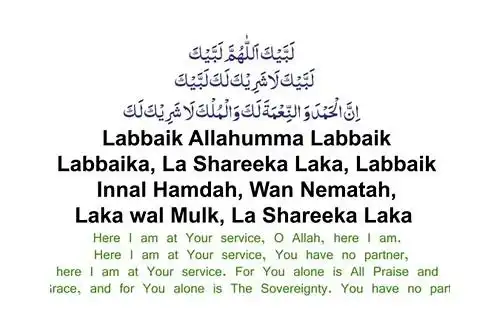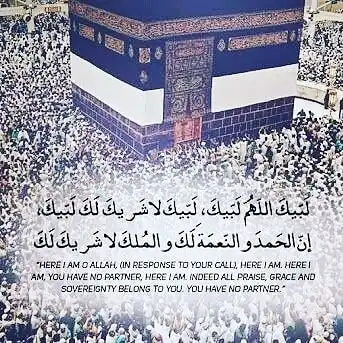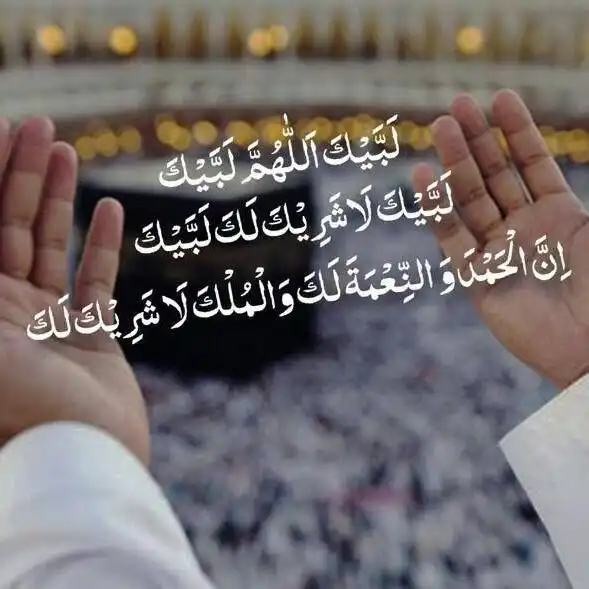Thank You!

You need to comb your hair, shape your beard, cut your moustache and nails, and cut extra hair from your body.
You should take bath for performing Ihram or do wudu (الوضوء). You can undertake purification in two ways.
The first method is by purifying your body by shower or wudu (الوضوء).Purifying your body internally, through repentance on your sins. You should recite: "O Allah, I sincerely repent on my sins and seek your forgiveness."
Men must wear white cloth around their waist and cover their upper body with the other sheet. Women's simple clothes are their Ihram. Both men and women should wear the flip-flops (hawai chappal), such that the middle bones of the upper part of the feet are uncovered.
After you have donned the Ihram garments, it is Sunnah to perform two Rakats of Salah al-Ihram before making the intention to enter into the state of Ihram. This should be performed before the Miqat has been crossed. Provided it isn’t one of the prohibited times for prayer, observe the Salah with the intention of performing two Rakats Nafl for Ihram.
If any other prayer is performed after changing into the Ihram attire and before pronouncing the intention, whether it is obligatory or Sunnah (such as the two Rakats Salah for the greeting of the mosque), it will account for this prayer, even if there is no intention to do so.
Since you’re not in the spiritual state of Ihram yet, you may perform the Salah with your head covered. It is a Sunnah to recite Surah al-Kafirun (Surah 109) in the first Rakat and Surah al-Ikhlas (Surah 112) in the second Rakat after Surah al-Fatiha, although any other Surah may be recited. Once you’ve finished, remove any headwear or anything else that may violate the rules of Ihram and get ready to make your intention.
Women in a state of menstruation should not perform the Salah, rather they should make their intention for Hajj or Umrah and recite the Talbiyah.
If you are going to Jeddah by air, it is suitable to get into the status of Ihram inside the airplane. The procedure is given as follows. You must do everything at home or at the airport except Niyyah (intention) and “Labbayka Allaahumma labbayk, labbayka laa shareeka laka labbayk, Inna al-hamd wa’l-ni’mata laka wa’l-mulk, laa shareeka lak (لَبَّيْكَ اللَّهُمَّ لَبَّيْكَ، لَبَّيْكَ لاَ شَرِيكَ لَكَ لَبَّيْكَ، إِنَّ الْحَمْدَ، وَالنِّعْمَةَ، لَكَ وَالْمُلْكَ، لاَ شَرِيكَ لَكَ) (Here I am, O Allaah, here I am. Here I am, You have no partner, here I am. Verily all praise and blessings are Yours, and all sov.
First take shower, then pay two rakahs of nafl. Next, you have to undertake intention, (النية) and “Labbayka Allaahumma labbayk, labbayka laa shareeka laka labbayk, Inna al-hamd wa’l-ni’mata laka wa’l-mulk, laa shareeka lak (لَبَّيْكَ اللَّهُمَّ لَبَّيْكَ، لَبَّيْكَ لاَ شَرِيكَ لَكَ لَبَّيْكَ، إِنَّ الْحَمْدَ، وَالنِّعْمَةَ، لَكَ وَالْمُلْكَ، لاَ شَرِيكَ لَكَ) (Here I am, O Allaah, here I am. Here I am, You have no partner, here I am. Verily all praise and blessings are Yours, and all sov.
This is performed at or before the boundary line called Miqat. Go to the plane and sit down with white clothes on. In the Hajj flight when you are approaching Miqat, the pilot will recite that the border line has come to make your intention and to say “Labbayka Allaahumma labbayk, labbayka laa shareeka laka labbayk, Inna al-hamd wa’l-ni’mata laka wa’l-mulk, laa shareeka lak (لَبَّيْكَ اللَّهُمَّ لَبَّيْكَ، لَبَّيْكَ لاَ شَرِيكَ لَكَ لَبَّيْكَ، إِنَّ الْحَمْدَ، وَالنِّعْمَةَ، لَكَ وَالْمُلْكَ، لاَ شَرِيكَ لَكَ) (Here I am, O Allaah, here I am. Here I am, You have no partner, here I am. Verily all praise and blessings are Yours, and all sov. If you have not changed your clothes before, you should do so now although it is not recommended inside the plane.
It is always suggested to ask at the time of boarding, whether the pilot will announce the arrival of Miqat. If the reply is no, then create your intention and say “Labbayka Allaahumma labbayk, labbayka laa shareeka laka labbayk, Inna al-hamd wa’l-ni’mata laka wa’l-mulk, laa shareeka lak (لَبَّيْكَ اللَّهُمَّ لَبَّيْكَ، لَبَّيْكَ لاَ شَرِيكَ لَكَ لَبَّيْكَ، إِنَّ الْحَمْدَ، وَالنِّعْمَةَ، لَكَ وَالْمُلْكَ، لاَ شَرِيكَ لَكَ) (Here I am, O Allaah, here I am. Here I am, You have no partner, here I am. Verily all praise and blessings are Yours, and all sov. By yourself one hour before you reach Jeddah.
Intention and “Labbayka Allaahumma labbayk, labbayka laa shareeka laka labbayk, Inna al-hamd wa’l-ni’mata laka wa’l-mulk, laa shareeka lak (لَبَّيْكَ اللَّهُمَّ لَبَّيْكَ، لَبَّيْكَ لاَ شَرِيكَ لَكَ لَبَّيْكَ، إِنَّ الْحَمْدَ، وَالنِّعْمَةَ، لَكَ وَالْمُلْكَ، لاَ شَرِيكَ لَكَ) (Here I am, O Allaah, here I am. Here I am, You have no partner, here I am. Verily all praise and blessings are Yours, and all sov – Keep your head open and declare your intention. It is understood that you are performing Hajj al-Tammat'u (حج التمتع) in which Umrah is done first as mentioned in the "Kinds of Hajj"."O Allah! I wish to perform Umrah. Please make it uncomplicated for me and accept it from me. Amen."Immediately after that speak the words of “Labbayka Allaahumma labbayk, labbayka laa shareeka laka labbayk, Inna al-hamd wa’l-ni’mata laka wa’l-mulk, laa shareeka lak (لَبَّيْكَ اللَّهُمَّ لَبَّيْكَ، لَبَّيْكَ لاَ شَرِيكَ لَكَ لَبَّيْكَ، إِنَّ الْحَمْدَ، وَالنِّعْمَةَ، لَكَ وَالْمُلْكَ، لاَ شَرِيكَ لَكَ) (Here I am, O Allaah, here I am. Here I am, You have no partner, here I am. Verily all praise and blessings are yours, and all sov 3 times and afterwards as possible. If you can't remember it, you can recite its translation in English, or other language except Talbiah. The translation is uttered in a loud voice by men and in a low voice by women.
Du'a - After this, you must recite Darud Sharif and implore to Allah Almighty any du'a in Arabic or in your own native language.
Prohibitions of Ihram - Thereafter intention and “Labbayka Allaahumma labbayk, labbayka laa shareeka laka labbayk, Inna al-hamd wa’l-ni’mata laka wa’l-mulk, laa shareeka lak (لَبَّيْكَ اللَّهُمَّ لَبَّيْكَ، لَبَّيْكَ لاَ شَرِيكَ لَكَ لَبَّيْكَ، إِنَّ الْحَمْدَ، وَالنِّعْمَةَ، لَكَ وَالْمُلْكَ، لاَ شَرِيكَ لَكَ) (Here I am, O Allaah, here I am. Here I am, You have no partner, here I am. Verily all praise and blessings are Yours, and all sov, you belong to the status of Ihram and from this moment, you should not perform any acts that are prohibited in Ihram.
During the commencement of this sacred journey towards Makkah al-Mukarrama , recite “Labbayka Allaahumma labbayk, labbayka laa shareeka laka labbayk, Inna al-hamd wa’l-ni’mata laka wa’l-mulk, laa shareeka lak (لَبَّيْكَ اللَّهُمَّ لَبَّيْكَ، لَبَّيْكَ لاَ شَرِيكَ لَكَ لَبَّيْكَ، إِنَّ الْحَمْدَ، وَالنِّعْمَةَ، لَكَ وَالْمُلْكَ، لاَ شَرِيكَ لَكَ) (Here I am, O Allaah, here I am. Here I am, You have no partner, here I am. Verily all praise and blessings are Yours, and all sov frequently during the journey. Then you must enter the holy city very meekly and with great affection still reciting “Labbayka Allaahumma labbayk, labbayka laa shareeka laka labbayk, Inna al-hamd wa’l-ni’mata laka wa’l-mulk, laa shareeka lak (لَبَّيْكَ اللَّهُمَّ لَبَّيْكَ، لَبَّيْكَ لاَ شَرِيكَ لَكَ لَبَّيْكَ، إِنَّ الْحَمْدَ، وَالنِّعْمَةَ، لَكَ وَالْمُلْكَ، لاَ شَرِيكَ لَكَ) (Here I am, O Allaah, here I am. Here I am, You have no partner, here I am. Verily all praise and blessings are Yours, and all sov. Once you have arranged your stay, go to the Haram Sharif to perform Umrah.
Entering Masjid al-Haram - While reciting the holy verse “Labbayka Allaahumma labbayk, labbayka laa shareeka laka labbayk, Inna al-hamd wa’l-ni’mata laka wa’l-mulk, laa shareeka lak (لَبَّيْكَ اللَّهُمَّ لَبَّيْكَ، لَبَّيْكَ لاَ شَرِيكَ لَكَ لَبَّيْكَ، إِنَّ الْحَمْدَ، وَالنِّعْمَةَ، لَكَ وَالْمُلْكَ، لاَ شَرِيكَ لَكَ) (Here I am, O Allaah, here I am. Here I am, You have no partner, here I am. Verily all praise and blessings are Yours, and all sov, enter Masjid al-Haram from Bab as-Salam with right foot first. Bow to Allah and proceed towards Ka'bah. You may speak the following prayer which is usually used before you enter a mosque: Allah huma aftah li abwabe rahmate ka (الهم افتح لي ابواب رحمتك)
First Sight – Seeing the Ka’bah, your eyes must be focussed at Baitullah and standing at one side, it is recommended that you exclaim Allahu Akbar three times and La Ilaha Illallah three times
You must announce Darud on our beloved Prophet (peace be upon him) and very meekly and with tears in your eyes submit to Allah for whatever you wish. This time is significant for the acceptance of prayers.
The crux is to exalt and glorify your Creator before enchanting Darud and supplications. Therefore, in lieu of Allahu Akbar and La Ilaha Illallah, you may speak some other similar holy verses if you so desire.
After this, while saying “Labbayka Allaahumma labbayk, labbayka laa shareeka laka labbayk, Inna al-hamd wa’l-ni’mata laka wa’l-mulk, laa shareeka lak (لَبَّيْكَ اللَّهُمَّ لَبَّيْكَ، لَبَّيْكَ لاَ شَرِيكَ لَكَ لَبَّيْكَ، إِنَّ الْحَمْدَ، وَالنِّعْمَةَ، لَكَ وَالْمُلْكَ، لاَ شَرِيكَ لَكَ) (Here I am, O Allaah, here I am. Here I am, You have no partner, here I am. Verily all praise and blessings are Yours, and all sov, move ahead to perform Tawaf of Ka'bah.
Tawaf of UmrahTawaf means going around something in a circle. Here it is defined as moving around Ka'bah seven times with full love and respect.
La Ilaha Illallah, لا إله إلا الله, etc.The Prophet of Islam (peace be upon him) has said that there are two kalimahs that are light on tongue and (on the Day of Judgment) they weigh heavy on the scale (Mizan) and are liked by Allah. These kalimahs are : Subhan Allah Wabe Hamde hi Subhan Allah Hil Azeem (سُبْحَانَ اللَّهِ وَبِحَمْدِهِ سُبْحَانَ اللَّهِ الْعَظِيمِ) (Bukhari, Muslim, Tirmizi) You can use the verses used in the daily Salah or you may seek pardon of Allah and ask Him whatever you wish in your own language.
Hatim - Hatim is a semi-circular half-built portion which was basically a part of the Ka'bah but not included in the main structure when the Ka'bah was built again. It is mandatory to go around Hatim also while performing tawaf.
Rukn Yamani and its Supplications - After going through the three corners of the Ka'bah you reach the fourth corner known as Rukn Yamani. You should touch it with both your hands or with your right hand. There is a wonderful verse to be used while walking between Rukn Yamani and Hajar-e-Aswad : "Rabbana atina fid-dunya hasanatan wa fil-akhirati hasanatan wa qina azabin-nar. (رَبَّنَا آتِنَا فِي الدُّنْيَا حَسَنَةً وَفِي الآخِرَةِ حَسَنَةً وَقِنَا عَذَابَ النَّارِ)
“Our beloved Prophet (peace be upon him) has repeatedly recited this supplication. The first circuit is complete when you reach Hajar-e-Aswad.
Seven Circuits - At Hajar-e-Aswad, you must begin the second round by kissing it or pointing towards it as you started the first round, i.e., you should come in front of Hajar-e-Aswad, raise both hands to your ears with open palms towards it and say : " Bismillahi Allahu Akbar Wa Lillah Hil Hamd (بسم الله، الله الكبر ولله الحمد)
Now you must kiss both your palms and drop your hands. After this you should go around Ka'bah as you did previously and finish the seven rounds.



